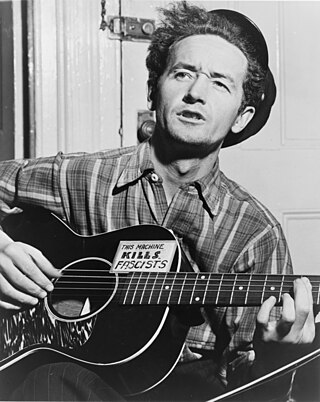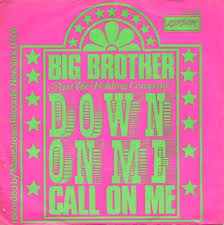
Mahalia Jackson was an American gospel singer, widely considered one of the most influential vocalists of the 20th century. With a career spanning 40 years, Jackson was integral to the development and spread of gospel blues in black churches throughout the U.S. During a time when racial segregation was pervasive in American society, she met considerable and unexpected success in a recording career, selling an estimated 22 million records and performing in front of integrated and secular audiences in concert halls around the world.

Odetta Holmes, known as Odetta, was an American singer, often referred to as "The Voice of the Civil Rights Movement". Her musical repertoire consisted largely of American folk music, blues, jazz, and spirituals. An important figure in the American folk music revival of the 1950s and 1960s, she influenced many of the key figures of the folk-revival of that time, including Bob Dylan, Joan Baez, Mavis Staples, and Janis Joplin. In 2011 Time magazine included her recording of "Take This Hammer" on its list of the 100 Greatest Popular Songs, stating that "Rosa Parks was her No. 1 fan, and Martin Luther King Jr. called her the queen of American folk music."

Rare, Live & Classic is a 1993 box set compilation by Joan Baez. Released on Vanguard, where Baez had recorded her most influential work during the first twelve years of her career, the set also included material from her subsequent record labels, A&M, Columbia and Gold Castle Records, as well as a number of previously unreleased studio and live recordings. Bob Dylan, Bob Gibson, Mimi Fariña, Judy Collins, Odetta and Kris Kristofferson are among those who make guest appearances on the various tracks; also included were two tracks from a never-released album recorded in 1981 with the Grateful Dead.
"Midnight Special" is a traditional folk song thought to have originated among prisoners in the American South. The song refers to the passenger train Midnight Special and its "ever-loving light".

"In My Time of Dying" is a gospel music song by Blind Willie Johnson. The title line, closing each stanza of the song, refers to a deathbed and was inspired by a passage in the Bible from Psalms 41:3 "The Lord will strengthen him upon the bed of languishing, thou wilt make all his bed in his sickness". Numerous artists have recorded variations, including Bob Dylan and Led Zeppelin.

Odetta Sings Ballads and Blues is the debut solo album by American folk singer Odetta. It was released in November 1956 by Tradition Records.
"He's Got the Whole World in His Hands" is a traditional African-American spiritual, first published in 1927. It became an international pop hit in 1957–58 in a recording by English singer Laurie London, which is one of the best-selling gospel songs of all time. The song has also been recorded by many other singers and choirs, including Mahalia Jackson, Marian Anderson, Judy Garland and Nina Simone.

The American folk music revival began during the 1940s and peaked in popularity in the mid-1960s. Its roots went earlier, and performers like Josh White, Burl Ives, Woody Guthrie, Lead Belly, Big Bill Broonzy, Richard Dyer-Bennet, Oscar Brand, Jean Ritchie, John Jacob Niles, Susan Reed, Paul Robeson, Bessie Smith, Ma Rainey and Cisco Houston had enjoyed a limited general popularity in the 1930s and 1940s. The revival brought forward styles of American folk music that had in earlier times contributed to the development of country and western, blues, jazz, and rock and roll music.
"Keep Your Eyes on the Prize" is a folk song that became influential during the American Civil Rights Movement of the 1950s and 1960s. It is based on the traditional song, "Gospel Plow," also known as "Hold On," "Keep Your Hand on the Plow," and various permutations thereof.
"Children, Go Where I Send Thee" is a traditional African-American spiritual song. Among the many different versions of the song, a defining feature is the cumulative structure, with each number accompanied by a biblical reference. Today, many Americans know it as a Christmas carol.
Odetta's discography is large and diverse, covering over 50 years and many record labels.

Odetta at Town Hall is a live album by American folk singer Odetta, recorded at Town Hall, New York, NY. At this time, Odetta was at the height of her career and performed an annual concert at the venue, typically in the month of April. It is not clear if this is her 1961 or 1962 concert performance. It could potentially be a compilation of her performances at Town Hall throughout the early 1960s. This album was first issued in 1962, as per the Vanguard Discography logs. The internet and some CD reissues will sometimes incorrectly report that this album was released in 1963.

Gonna Let It Shine: A Concert for the Holidays, is a live album by American folk singer Odetta, released in 2005. It was recorded at Fordham University in New York City for a public radio broadcast.

Movin' It On is a live album by American folk singer Odetta, released in 1987. It is a recording of a concert at The Wisconsin Union Theatre, Madison, Wisconsin and was her first release in 12 years. It is out of print.

The Essential Odetta is a live album by American folk singer Odetta, originally released on LP in 1973.

Absolutely the Best is a compilation album by American folk singer Odetta, originally released in 2000.

The Tradition Masters is an album by American folk singer Odetta, released in 2002.

"Down on Me" is a traditional freedom song from the 1920s or earlier that became popular following its remake by Janis Joplin and Big Brother and the Holding Company.

The Union Boys was an American folk music group, formed impromptu in 1944, to record several songs on an album called Songs for Victory: Music for Political Action. Its "all-star leftist" members were Josh White, Sonny Terry, Brownie McGhee, Pete Seeger, Burl Ives, Tom Glazer.
"Jesus Met the Woman at the Well" is a traditional gospel song. It relates the story of the meeting between Jesus and the Samaritan Woman, found in the Gospel of John at 4:4-26.














